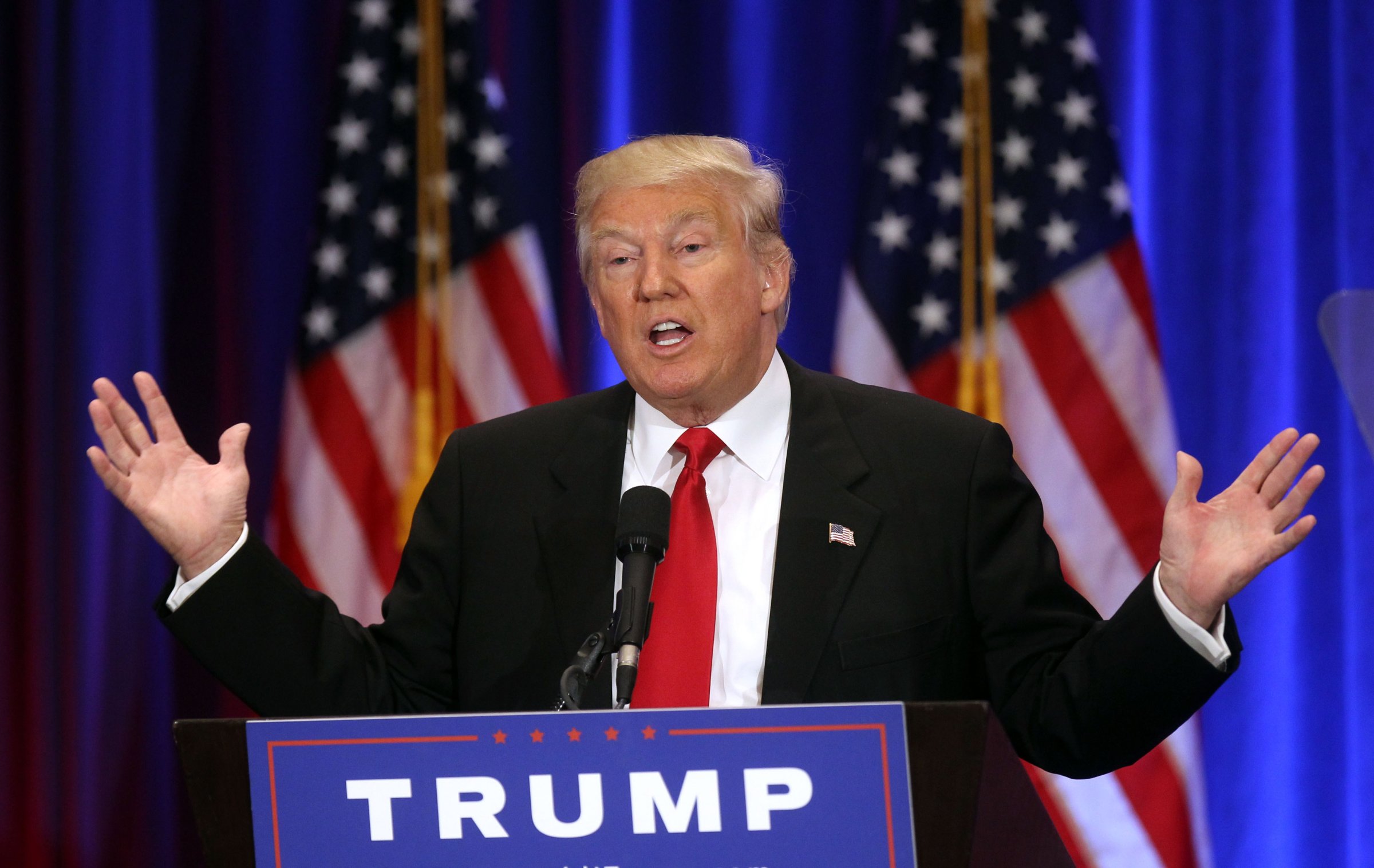
Most of us don’t swear in school, in church, before children or in front of an elderly neighbor. We choose our words based on our assessment of the context, and when there is the potential to cause offense, we hold back. Until now, campaigning for president has been one of these situations. But now, it seems that the potential benefits of swearing are thought to outweigh the potential disadvantages.
Presidents have always sworn, of course, at least in private. George Washington, who issued several orders forbidding “profane cursing” among American soldiers, is said to have called General Charles Lee a “damned poltroon” (coward) after his ill-advised retreat during the Battle of Monmouth in 1778. Andrew Jackson’s pet parrot is said to have cursed a blue streak during Jackson’s funeral in 1845. Lyndon Johnson was famously foul-mouthed—when the Prime Minister of Canada gave a speech in Philadelphia criticizing American foreign policy in 1965, he grabbed the prime minister by the lapels and yelled: “Don’t you come into my living room and piss on my rug!” Richard Nixon’s Watergate tapes contain almost every obscenity and slur you can think of. Open mics captured George W. Bush referring to a reporter as a “major-league asshole” in 2000, and President Barack Obama recently gave cursing a cautious endorsement, telling comedian Jerry Seinfeld that it can be a useful way of dealing with the stupid stuff life throws at you.
But no one comes close to Donald Trump. The country is “going to hell”; he doesn’t “give a damn” about various things; he’s going to “bomb the sh-t out of ISIS”; he might talk to the Chinese about trade by starting off, “listen, you motherf-ckers.” The swearing is quite Nixonesque, except that Trump is doing in it public.
Trump haters very likely assume that his swearing indicates a poor vocabulary and a deficiency of self-control—these are qualities often associated with people who swear frequently. Trump’s swearing, though, is actually a canny rhetorical strategy, whether he realizes it or not.
Studies have shown that people who swear are more likely to be believed. In 2005, Dutch psychologists found that legal depositions containing swearwords were thought to be more credible than those without. Italian researchers investigated the effect of swearing in political campaigns, when Beppe Grillo—a comedian turned political activist known for his embrace of bad language—led his party to unexpected electoral success in 2013. These psychologists had study participants read political blog posts with and without obscenities, and found that people had more favorable impressions of—and would be more likely to vote for—the cursing candidates.
Swearwords are deeply connected to the brain’s limbic system, which roughly speaking regulates many of our “primitive” emotions such as fear and aggression and produces our fight-or-flight response. When we hear people swear, we often assume that their words spring from a deep well of real feeling. “I believe that strategic carpet bombing of selected targets in Syria is the best option” comes from the head; “We’re gonna knock the shit out of ISIS” comes from the heart—or at least appears to. This is something of an illusion, however. Though swearwords may receive their emotional content in our “lower brains,” they are under the conscious control of our “higher brains” as well, as anyone knows who has ever started to swear in front of Grandma and made a last-moment change to “Shoot!”
Why aren’t all political candidates swearing up a storm, then? Bernie Sanders is doing his part, somewhat under the radar. His occasional swearing identifies him as a “man of the people,” like Trump, as, statistically, members of the working class swear most and use the strongest words. Many candidates have religious objections, of course. They either feel the force of this tradition themselves, or don’t want to alienate voters who might, although given that the average American uses 80 to 90 curse words a day, perhaps they are overestimating the potential offense.
It is different for Hillary Clinton. The rules about what constitutes appropriate language are stricter for women than they are for men. While people 25 and under tend to expect that both genders should swear frequently, using words of similar offensiveness, people of older generations often still have the idea that swearing is not “ladylike.” For example, in 2015, former presidential candidate Mike Huckabee expressed shock at how often people drop the f-bomb out East: “In New York, not only the men do it, but the women do it.” Several books about Clinton use this societal attitude to vilify her, portraying her as a foul-mouthed harridan who spews curses at state troopers, secret service agents, military veterans and innocent staffers trying to fly the American flag. As a female candidate, Clinton already walks a minefield, trying to appear tough and responsible without looking like a word Huckabee would never say. Whether or not she swears in private, she is careful not to do it in public.
Trump has already talked about toning down his swearing as he attempts to appear more “presidential,” though so far the results are mixed. This would be a mistake—Trump’s swearing is an integral part of what his supporters see as his gleeful disregard of conventional politics, and what makes him seem authentic and trustworthy. If he does manage to stop, he will have to rely on his experience, expertise and authority when he campaigns, just like Clinton.
More Must-Reads From TIME
- Dua Lipa Manifested All of This
- Exclusive: Google Workers Revolt Over $1.2 Billion Contract With Israel
- Stop Looking for Your Forever Home
- The Sympathizer Counters 50 Years of Hollywood Vietnam War Narratives
- The Bliss of Seeing the Eclipse From Cleveland
- Hormonal Birth Control Doesn’t Deserve Its Bad Reputation
- The Best TV Shows to Watch on Peacock
- Want Weekly Recs on What to Watch, Read, and More? Sign Up for Worth Your Time
Contact us at letters@time.com